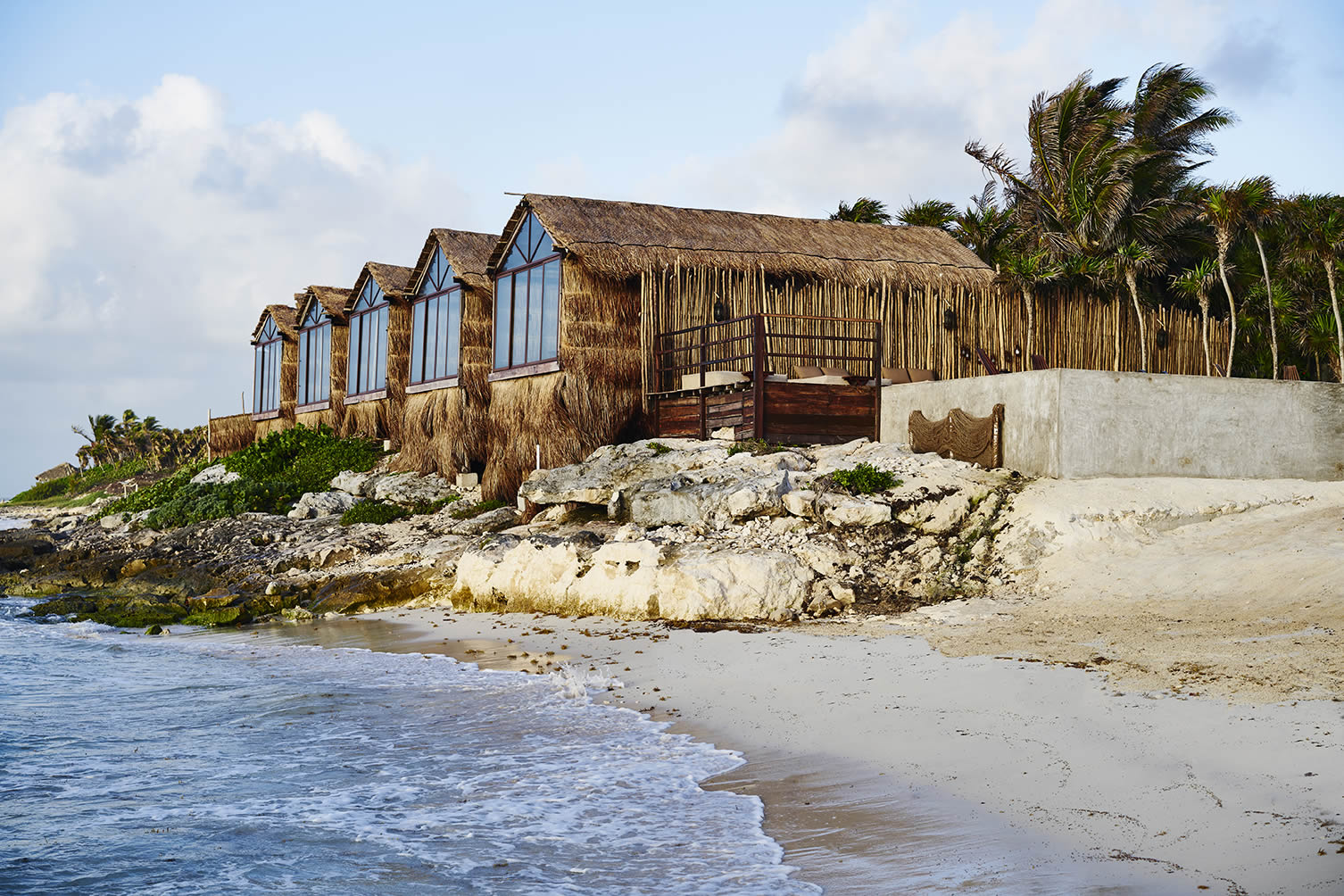Hospitality management group Habitas has raised $20m to expand their concept of “social” beach huts. The addition of an unspecified 3D printing technology has also raised eyebrows.
A recent profile by the Financial Times reveals that backers of project include Travis Kalanick, co-founder of Uber and Justin Mateen, co-founder of Tinder and a “brains trust” who met at the pseudo-bohemian hippy fest, Burning Man.
The Mexican resort operated by Habitas is the first step in a global vision and set to create highly instagrammable “experiences” based vacations. Reviewing the marketing paraphernalia and associated aspirational hashtags it is hard not to recall another tropical venture favored by influencers, Ja Rule’s Fyre Festival.
Investor base as “brains trust”
Oliver Ripley, co-founder of Habitas said he spent six months building the investor base, expecting to act as a “brains trust” as the hotel company expands. Besides the co-founders of Uber and Tinder, Div Turakhia, the Indian ad-tech billionaire and other entrepreneurs, like Tim Steiner, chief executive of online supermarket Ocado and technology investors Maurice Salem, Shervin Pishevar, Mike Novogratz and Jonathan Teo are backing the project of Habitas.
The focus would be on millennial tourists looking for a social holiday rather than a “fancy lobby”, according to Ripley. The co-founder said the concept is
“a little bit like Club Med for our generation. Incredible experiences with food, with music, with the right kind of wellness — not the fanciest spa but really just reconnecting.”
“Building something for the soul”
Hospitality management group Habitas has already built accommodation in Tulum, Mexico. A night in their canvas-walled beach palapas – stated to coexist with nature and match their commitment to #stayplasticfree – costs $200-$400. Although the focus is not on the rooms, but on creating human interaction and emotional connection, Ripley said.

The idea of the Habitas hotels born out of Burning Man, Ripley explained to WWD, where Ripley has built a camp geared toward VIP attendees. “For us really what’s important is not so much what goes inside the rooms, but what goes on outside the rooms, we’re really building something for the soul.” The hotel, therefore, holds live concerts and dance parties on the beach, often found quite noisy for guests intended to relax in their tents, according to Tripadvisor.
“We assemble them like Lego”
To expand, founders of Habitas decided to invoke the headline-grabbing power of additive manufacturing technology. To build their hotel rooms, Ripley states, Habitas follows a modular housing technique, using the aforementioned “3D printing technology”. The company flat-packs the basic structures of the rooms and ships them to the final location. According to Ripley, they can manufacture about 100 rooms per month. The company’s co-founder expects the hotels to be constructed within six to nine months, and earn a return on investment within two years.

By the end of the year, Habitas co-founder Oliver Ripley already plans to have eight locations for their lightweight hotels. One in Namibia, where they would open a hotel this month. Ripley also visited Bhutan and Saudi Arabia with similar intentions, he would like to bring their concept to Asia, the Middle East, and Africa.
3D printed homes against the housing crisis?
Using 3D printing technology to fasten the building process has reached a landmark in Singapore, where NTU and Sembcorp researchers printed concrete bathroom units in less than 12 hours.
For sustainability reasons, Italian 3D printer manufacturer WASP collaborated with Mario Cucinella Architects (MCA) to 3D print a model for sustainable global habitat, that can adapt to any climate. The researchers explored the causes and effects of homelessness, and the potential for technological advances to help in achieving a suitable solution, remaining energy-efficient.
Texas-based construction technologies company ICON is about to reinvent the construction of affordable homes with the use of 3D printers. The company intends to draw up a solution for the global housing crisis, collaborating with a non-profit organization New Story, fighting homelessness by 3D printing houses in Latin America. The first set of homes have already been 3D printed in Tabasco, Mexico.
Habitas did not reply to a request for comment.
For the latest news in additive manufacturing, subscribe to the 3D Printing Industry newsletter You can also stay connected by following us on Twitter and liking us on Facebook.
Visit 3D Printing Jobs for a selection of roles in the industry, or even to advertise a position or apprenticeship for free.
Featured image shows Habitas Room in Tulum, Mexico. Photo by Adrian Gaut.


